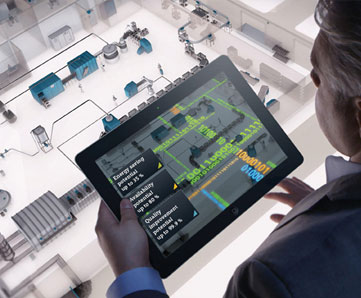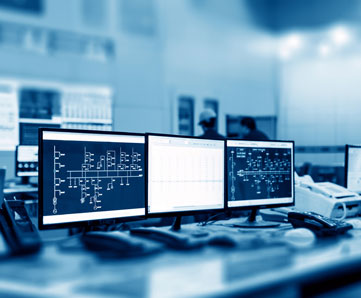

BMS TRAINING INSTITUTE IN DUBAI, UAE
The tremendous growth in construction industry lead to more optimized controls and energy saving practices. The world is becoming smarter and greener by the implementation of high end automation systems. The energy efficiency and less CO2 emission are gaining more importance. Building Management Systems leads to more optimized control of resources, high end security and ease of access from anywhere. The internet of things initiated by big technology ventures will create a smart world which can be controlled by just a click. The lack of trained BMS engineers leads to the improper design and implementation. The industry is looking for skilled engineers who can meet all the requirements in BMS sector. IPCS CERTIFIED BMS ENGINEER training program is an excellent opportunity to enhance your employability in home automation and BMS sector. We are unable to fill the industry requirements in qualified BMS Engineers because of shortage in number of trained candidates. Utilize this excellent opportunity and assure your job in ever growing automation industry. Detailed syllabus is as follows
CERTIFIED BMS ENGINEER (C.B.E) - 120 HOURS
- FUNDAMENTALS OF BUILDING MANAGEMENT SYSTEM
- BMS CONFIGURATION
- RELAY LOGIC SYSTEMS
- CONTROL PANELS
- SERVO DRIVES
- VFDS
- CCTV
- BIOMETRIC ACCESS CONTROL
- FIRE ALARMS & PANELS
- PLC
- HMI
- SCADA
- HVAC System
FUNDAMENTALS OF BUILDING MANAGEMENT SYSTEM
- Basic design criteria
- Components used in bms
- Concept of green & smart design
- Energy management systems
- MEP design fundamentals
BMS CONFIGURATION
- BMS controller - Johnson control fx 15, fx15 programming
- Basic parameters
- Energy measurement
- Transmission techniques
- Network protocols- Modbus, Profibus, Canbus
- configuration of software
RELAY LOGIC SYSTEMS
- Basics of Relays, Contactors, Timers, OLR, MCCB, ACB
- Digital timers, counters
- Motor control circuits- DOL, Star Delta
- Implementation of fire alarm logic
CONTROL PANELS
- Different types of panels
- Wiring and trouble shooting
- AMF panels
- APFC panels
- Power management systems
- Earthing practices
SERVO DRIVES
- Basics of motors- DC Motor, Stepper, Servo
- Feedback system
- Speed control
- Torque control
- Selection of Servo motor and drives
- Programming of stepper motor drives
- Interfacing with PLC, HMI
VFDS
- Concept of two wire/ three wire controls
- Selection of VFDs
- Programming of VFD
- fault correction
- interfacing with HMI, PLC
CCTV
- Selection of camera
- Cabling and termination
- Different types of cameras
- Night vision systems
- DVR configuration
- Remote monitoring through phone and net.
BIOMETRIC ACCESS CONTROL
- RFID cards
- Finger print
- Report preparation
- Magnetic locks
FIRE ALARMS & PANELS
- sensors-heat, smoke, Air
- Conventional fire alarm panels
- Addressable fire alarm panels
- Cabling
- Safety standards
- Alarms
- PA systems
- recorders
PLC
- Monitoring the process through sensors- connection details.
- Analog addressing, continuous process monitoring and control.
- NO/ NC concept.
- Data file handling- forcing i/o.
- Wiring and trouble shooting.
- Programming practices.
HMI
- HMI system overview.
- HMI hardware overview.
- Operation of standard display panels.
- Display panels - textual and graphical
- Communication with PLC and drives
SCADA
- SCADA packages
- Role of SCADA in industrial automation
- SCADA system configuration, RTU, communication protocols.
- Script Programming.
- Real time and historical trend.
- Configuring alarms.
- Real time project development with plc interfacing.
- Communication with other software.
- Recipe management.
- Accessing different security levels.
- Report generation of current plant.
HVAC System
- Introduction to HVAC
- Scope of designing
- Basics and importance of HVAC
- Future advancements in HVAC
- Standards and codes used in HVAC
- Modes of heat transfer in a building
- Basic components of air conditioning
- Types of refrigeration cycles
- Types of air conditioning systems
- Design of Ventilation system
- Load calculation using E 20 manual calculation
- Ventilation
- Infiltration load calculations
- Pump size and hydraulic head calculation for chilled water Study on ducts and its types
- Study on air distribution systems
- Air terminal selection
- Cold storage selection
- Selection of Materials of Ducts
- Primary and secondary pump selections
- Duct material selection
- Selection of cooling tower
- Selection of Chillers
- AHU and FCU classification and selection
- Package unit selection DX unit selection
- Selection of Condensers (Air cooled, Water cooled, Evaporative)
- Selection of De-humidifier
- Selection of Expansion tank
- Lighting Controls




